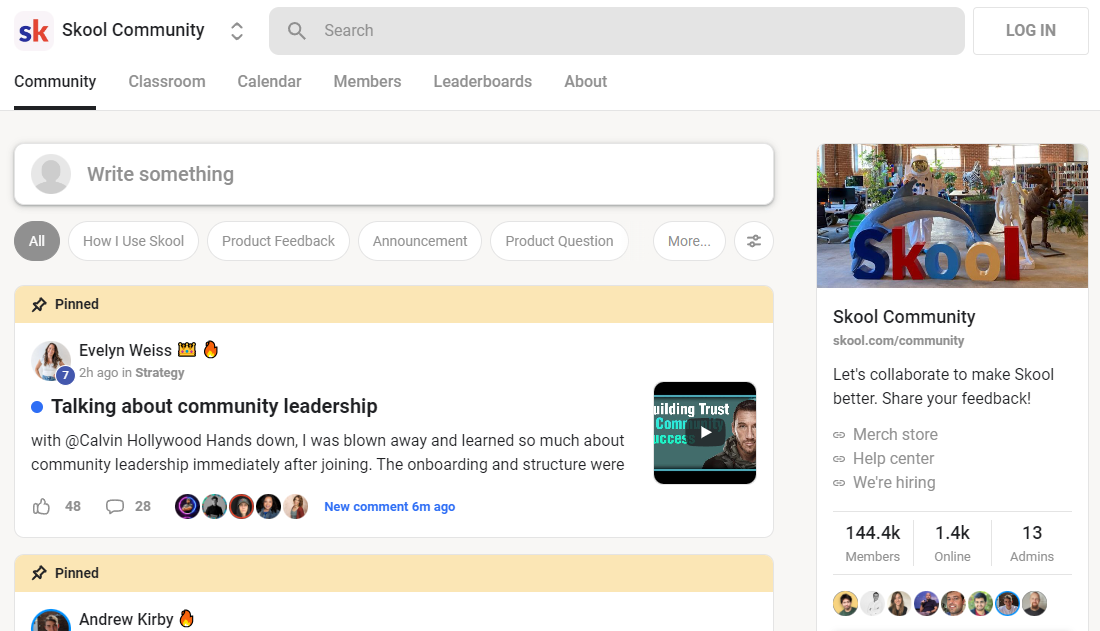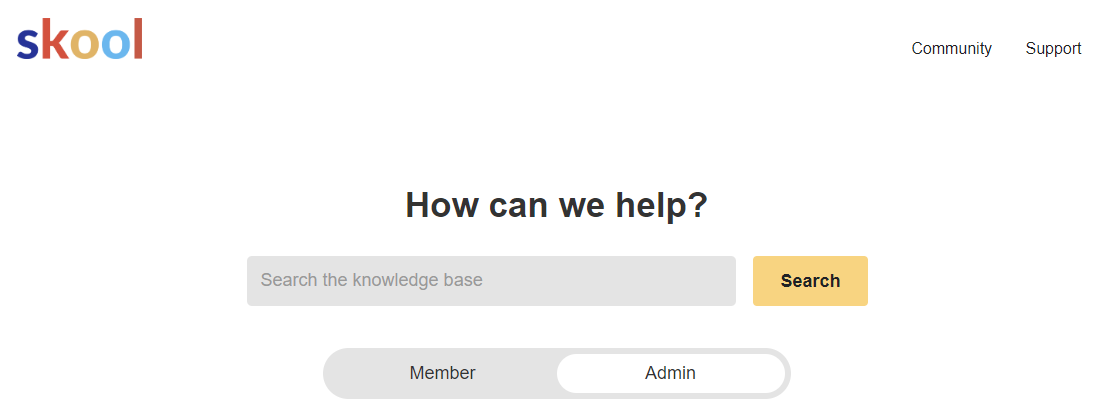Skool supplies best-in-class gamification functions that increase interaction. For example, participants can earn levels based upon their participation, which unlock program web content and other rewards that further inspire them.
Formerly, designers needed to use different devices for holding programs, building neighborhoods and managing e-mail advertising and marketing. This produced a disjointed experience for both makers and their target markets.
Developing Courses
Skool has a basic, easy to use user interface and focuses on neighborhood structure and training course holding over other attributes. It allows makers to develop a dynamic area for their training courses and mentoring programs by connecting them with the appropriate target market. This likewise helps them keep an eye on the health of their content business with the help of a straightforward control panel.

To start, an individual can sign up for a totally free 14-day trial of Skool. Afterwards, they can pay $99 a month for the system to hold a single community. There are no other rates choices available for the moment. Skool additionally processes payment and pays makers weekly, but it does bill a 2.9% purchase fee.
One of the special elements of Skool is that it can be used to create interactive training courses. These can consist of live webinars, team jobs and real-time conversations. These sorts of programs motivate involvement and rise program completion prices. In addition, Skool’s gamification attributes help to encourage area involvement. For instance, members can make points and unlock program material when they get to particular degrees in the area.
Customers can also use the social feed upon Skool to publish updates and communicate with others in the neighborhood. The feed resembles a Facebook team, yet with an extra regulated way of uploading. This aids to stay clear of the kind of spam and misuse that takes place on various other social systems.
Taking care of Communities
Skool is an extremely basic platform to make use of, for both participants and admins. Its simplicity is one of its primary marketing factors– when someone joins your neighborhood they won’t be faced with a number of alternatives or functions that can derail their experience and perplex them.
The system begins as a personal group by default, however you can easily alter this to open up your neighborhood to anyone that you want to belong to it. When you’ve done this you’ll see a social feed like you would certainly on Facebook Groups or WhatsApp (but without all the rip-off things and swearing).
You can likewise include a classroom tab to your area that you can use to share educational material with your participants. This feature is especially valuable for communities that are focused on learning or expert advancement as it aids to create an instructional framework and makes it very easy for members to track their development. On top of that, the platform has gamification aspects that enable members to make points by liking messages or remarks. When they reach a particular degree they can unlock resources, such as training courses, even more driving interaction.
The other great thing is that Skool has a mobile app, just like Mighty Networks or Slack, so members can stay up to date with your neighborhood and connect on the go. This is a great method to urge and engage your members and to help them obtain support from each other when they need it, as opposed to just turning to you for responses.
Skool World Games
Skool focuses on gamification, allowing users to make factors and badges for their contributions. This inspires participants to involve with the neighborhood and contribute to discussions. In turn, this helps them level up and unlock benefits like video clips and other content. Admins can also establish training courses to be unlocked at certain degrees to additional drive involvement.

The Skool user interface is spick-and-span and instinctive. Its main features consist of the Community tab, which looks just like a Facebook group feed. Below, customers can upload comments and message in addition to upload pictures, links and videos. Members can likewise watch each others profiles and get in touch with them. Moreover, individuals can develop exclusive groups in the community to discuss certain topics.
An additional function of Skool is the Classroom tab, which is similar to a YouTube livestream or Zoom meeting. Utilizing this, managers can organize trainings and webinars for their students. They can additionally add occasions in the schedule to remain updated on upcoming events and Skool World Games.
Nevertheless, some elements of Skool can use renovation. For instance, the platform isn’t flexible when it concerns monetization as individuals can not use multiple pricing rates for their training courses and community subscriptions. Additionally, the device lacks an e-mail marketing attribute, which might be an offer breaker for some program creators. It also doesn’t have native video clip holding, implying that customers need to utilize external platforms like YouTube, Loom and Vimeo for their video clips.
Adding Content
The procedure for adding material and engaging with members on Skool is very easy and simple. Admins can create messages with text, GIFs, video clips and polls. They can additionally include event calendars to notify community participants of upcoming group Zoom calls or live streams. In addition, they can make use of Skool’s e-mail broadcast feature to send out a message to the whole neighborhood with a single click. This removes the demand for marking and listing division, which can be cumbersome.
In addition, Skool’s gamification features can improve engagement and user retention. It encourages participants to interact with the web content regularly by awarding them with various rewards. These include opening course web content, gaining points and gaining a place on community leaderboards.
While Skool uses a host of beneficial attributes for creating and delivering online courses, it’s except everyone. The platform is best for trains, professionals and various other details business owners. However, the cost can be a challenge for some people wanting to monetize their online web content.
Additionally, the absence of fundamental rates and a short free trial may be a deterrent for lots of. Furthermore, the platform’s laser-focus on eLearning can make it much less desirable for people who wish to sell other digital items. However, regardless of these drawbacks, Skool World Games is still a sensible alternative for anybody seeking to produce and monetize online training courses.